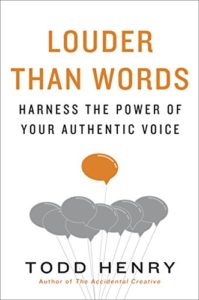by Celinne Da Costa
Whenever you find yourself rushing through life, take a step back and ask: “Why the rush? What am I actually working towards?”
Are you familiar with “the hustle”? It goes something like this…
You wake up. Check your phone. Brush your teeth, go to the toilet, and check your phone again. You get ready for the day. Maybe you go to the gym, do your meditation routine, or check your email… or all of that. You rush to your job or coworking space, where you spend the day working and scarfing down meals in between meetings. When you finally “finish” work (because let’s be real, you’re checking your email after-hours anyway), you go meet a friend or spend the evening watching Netflix or another activity that will help you relax. You go to sleep and do it all over again the next day.
It’s exhausting, but hey, at least you got sh*t done. You’ll get your break someday… right?
I used to think that this type of routine was exclusively reserved for people stuck in 9-5 jobs, and that’s why I quickly ran away from corporate. Since starting my own business a few years ago, I realized that this was not the case.
It seems that everywhere I go, people are suffering from the “hustle culture” pandemic. By hustle culture, I mean the collective urge we currently seem to feel as a society to work harder, stronger, faster. To grind and exert ourselves at our maximum capacity, every day, and accomplish our goals and dreams at a lightning speed that matches the digital world we’ve built around ourselves.
Don’t get me wrong, working hard is important. Being raised by a single immigrant parent who rose out of poverty and worked hard to build a better future for our family, I first-hand witnessed the value of being persistent towards your dreams, never giving up, and constantly striving for a better life. We can’t sit around expecting for our circumstances to improve without putting in the work and effort.

© Derek Simpson Photography
With that being said, I’m seriously questioning whether hours clocked in equals output produced. In both the corporate and entrepreneurial worlds, I’ve watched people run around like chickens with their heads cut off, rushing from one meeting to another, feverishly checking off tasks, and not making time for much other than work or other “productive” activities. Needless to say, under these circumstances, self-care becomes an afterthought.
This attachment to the hustle is doing us more harm than good. Just this year, Americans have hit record-high levels of stress, anxiety, and anger: 55% of Americans report feeling stressed about their lives, which is 20% higher than the global average. Working too hard is costing us our mental and physical health on so many levels.
It makes me wonder, how much of our work is genuinely productive, and how much of it is an addiction to being busy?
I’ve been experimenting with this in my business this year: I’ve worked 40+ hour weeks, as well as 15 hour weeks. I’ve noticed that there is actually little correlation with the hours that I clock in versus the money that I make. In fact, I’ve made twice as much income working half the time enough times to convince me that it’s not about the quantity of hours I’m putting towards my business, but rather the quality.
Do you find these posts helpful and informative? Please CLICK HERE to help keep us going!



